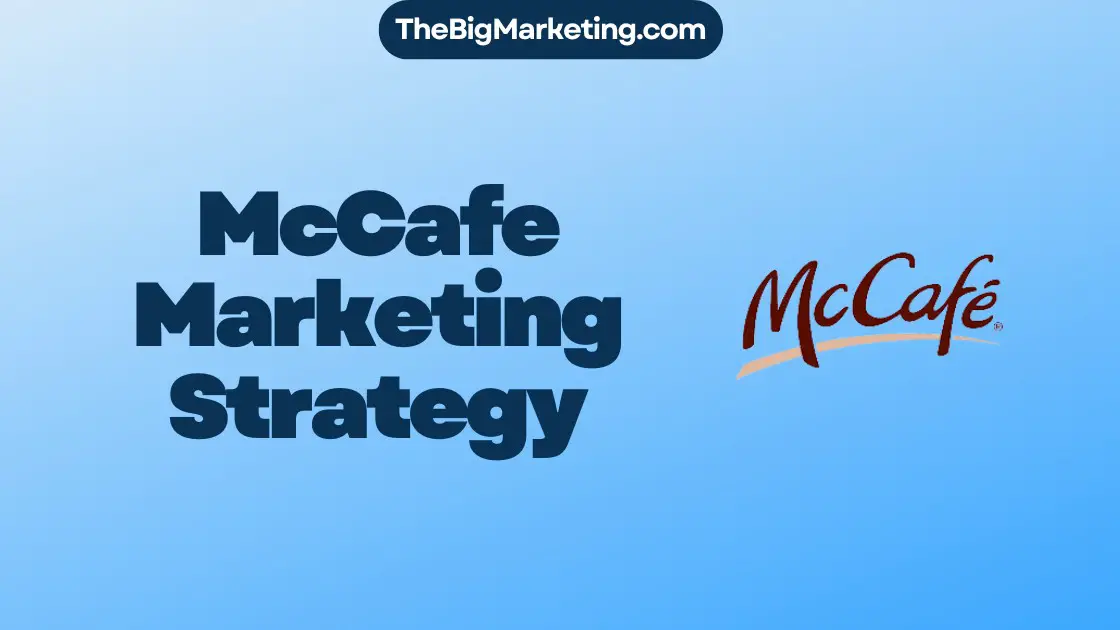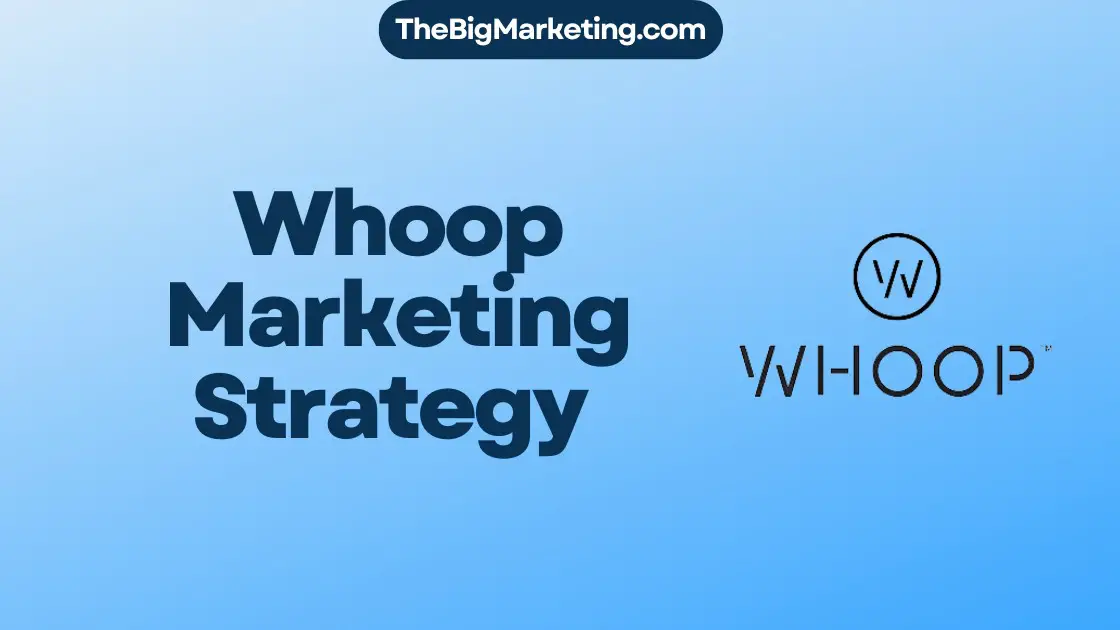E-marketing, also known as online marketing or internet marketing, is the practice of promoting goods and services through the internet. It allows businesses to reach a wide range of potential customers due to the large number of people using the internet today. E-marketing is crucial for businesses because it allows them to find and target potential customers online, communicate more efficiently with their audience, personalize their marketing strategy based on customers’ interests, increase brand visibility, and get quality leads interested in their product. It involves various technologies such as search engine optimization (SEO), pay-per-click (PPC) advertising, social media marketing, content marketing, email marketing, mobile marketing, affiliate marketing, and influencer marketing.
Key Takeaways:
- E-marketing is the practice of promoting goods and services through the internet.
- It allows businesses to reach a wide range of potential customers.
- E-marketing involves various technologies such as SEO, PPC advertising, social media marketing, content marketing, email marketing, mobile marketing, affiliate marketing, and influencer marketing.
- It enables businesses to communicate more efficiently with their audience and personalize their marketing strategy.
- E-marketing increases brand visibility and generates quality leads for businesses.
Types of E-Marketing
E-marketing, or online marketing, encompasses various strategies and techniques to promote products and services. Let’s explore the eight main types of e-marketing:
1. Search Engine Optimization (SEO)
SEO focuses on enhancing a website’s visibility and ranking in search engine results. By optimizing content with relevant keywords, meta tags, and backlinks, businesses aim to attract organic traffic from search engines like Google.
2. Pay-Per-Click (PPC) Advertising
PPC advertising involves placing ads on search engine results pages and websites. Advertisers pay when users click on their ads. This method allows businesses to target specific keywords and reach potential customers interested in their offerings.
3. Social Media Marketing
Social media marketing leverages popular platforms like Facebook, Instagram, and Twitter to engage with users, build brand awareness, and drive conversions. Businesses can create compelling content, run targeted ads, and interact with their audience directly.
4. Content Marketing
Content marketing involves creating valuable, relevant, and shareable content to attract and retain customers. By publishing blog posts, articles, videos, and infographics, businesses establish themselves as industry experts and provide value to their audience.
5. Email Marketing
Email marketing focuses on communicating with customers through email. Businesses can send targeted messages, promotional offers, newsletters, and personalized recommendations to nurture customer relationships and drive conversions.
6. Mobile Marketing
Mobile marketing engages audiences through their smartphones, tablets, and other mobile devices. This includes tactics such as optimized mobile websites, mobile apps, SMS marketing, and location-based targeting to reach customers on the go.
7. Affiliate Marketing
Affiliate marketing involves partnering with external websites or influencers to promote products and services. Businesses pay affiliates commission for each customer they refer. This collaborative approach expands brand reach and drives sales.
8. Influencer Marketing
Influencer marketing capitalizes on collaborations with influential individuals in specific niches or industries. By leveraging the reach and credibility of influencers, businesses can enhance brand visibility and connect with their target audience.
In summary, e-marketing encompasses a wide range of strategies to connect with customers online. Businesses can leverage search engine optimization, pay-per-click advertising, social media marketing, content marketing, email marketing, mobile marketing, affiliate marketing, and influencer marketing to effectively reach and engage their target audience.
The Advantages of E-Marketing
E-marketing offers several advantages over traditional marketing methods. One of the key benefits of e-marketing is its ability to reach a highly targeted audience. By leveraging data and analytics, businesses can identify and target individuals who are most likely to be interested in their products or services. This targeted approach maximizes the effectiveness of marketing efforts and improves the return on investment.
Another advantage of e-marketing is its cost-effectiveness. Unlike traditional marketing channels such as print advertisements or television commercials, e-marketing can be done on a low budget initially and scaled up as needed. This makes it accessible to businesses of all sizes, including startups and small enterprises.
E-marketing also allows for a customized advertising approach. Through techniques like personalization and segmentation, businesses can tailor their offers and messages based on customers’ preferences, behaviors, and buying history. This level of customization enhances the customer experience and increases the likelihood of conversion.
In addition, e-marketing facilitates building strong customer relationships. With personalized communication through channels like email marketing or social media engagement, businesses can connect with customers on a more individual level. This personalized approach helps to foster trust, loyalty, and long-term customer satisfaction.
Compared to traditional marketing, e-marketing is more advanced in terms of its reach and accessibility. With the internet, businesses can transcend geographical boundaries and target a global audience. Moreover, e-marketing operates 24/7, providing customers with access to information, products, and services at any time. This level of convenience and accessibility further enhances the customer experience and drives engagement.
There are various platforms and techniques available for e-marketing, providing flexibility and the ability to adapt strategies based on goals and feedback. Businesses can leverage search engine optimization (SEO), content marketing, social media marketing, email marketing, and other techniques to create a comprehensive and multifaceted e-marketing strategy.
The Benefits of E-Marketing
- Highly targeted marketing
- Cost-effectiveness
- Customized advertising
- Building strong customer relationships
- Global reach and 24/7 accessibility
- Flexible platforms and techniques
In summary, e-marketing offers numerous benefits that can greatly enhance a business’s marketing efforts. From its ability to reach a targeted audience and its cost-effectiveness to its customization and accessibility, e-marketing is a powerful tool for businesses aiming to achieve their marketing goals in the digital age.
What is Online Marketing?
Online marketing, also known as internet marketing or web advertising, is a form of marketing that utilizes the internet to deliver promotional messages to customers through various digital channels. These digital channels include search engines, email, websites, and social media platforms. Online marketing offers unique benefits such as global reach, real-time measurement of results, adaptability, and more control over budget and messaging.
Online marketing encompasses a range of strategies and tactics to effectively promote products and services. These strategies and tactics include:
- Search Engine Optimization (SEO): Optimizing websites to improve their visibility on search engine results pages.
- Social Media Marketing: Utilizing social media platforms to connect with the target audience, increase brand recognition, and drive engagement.
- Content Marketing: Creating and distributing valuable content to attract and retain the target audience.
- Email Marketing: Using email communication to inform and engage subscribers, promoting products, services, and content.
- Pay-per-click Advertising: Paying for advertisements displayed on search engine results pages or websites and paying per click received.
Online marketing is known for its cost-effectiveness, targeted reach, flexibility, scalability, and trackability. It allows businesses to target specific demographics, interests, and behaviors, ensuring their marketing messages are delivered to the right audience. It also provides the ability to monitor and measure the effectiveness of marketing efforts in real time, allowing for data-driven decision-making.
| Benefits of Online Marketing |
|---|
| 1. Cost-effectiveness |
| 2. Targeted reach |
| 3. Flexibility |
| 4. Scalability |
| 5. Trackability |
Online marketing offers a cost-effective way for businesses of all sizes to reach a global audience. It eliminates the need for traditional offline marketing methods, which can be expensive and have limited reach. With online marketing, businesses can define their target audience based on specific demographics, interests, and behaviors, ensuring their marketing efforts are reaching the right people.
The flexibility of online marketing allows businesses to adapt their marketing strategies and campaigns based on real-time data and feedback. This flexibility enables businesses to optimize their marketing efforts, make necessary adjustments, and experiment with different tactics to achieve the best results.
Scalability is another benefit of online marketing. Businesses can start with a small budget and gradually increase their investment as they see positive results. Unlike traditional marketing methods, online marketing allows businesses to allocate their budget more efficiently by focusing on the channels and tactics that generate the highest return on investment.
The trackability of online marketing is crucial for measuring the success of marketing campaigns. Businesses can track and analyze various metrics, such as website traffic, conversion rates, email open rates, and social media engagement, to gain insights into the effectiveness of their marketing efforts. These insights inform data-driven decision-making and help businesses optimize their marketing strategies for better results.
Types of Online Marketing
Online marketing encompasses various types of strategies and tactics to promote businesses and engage with the target audience. Let’s explore the different types of online marketing:
1. SEO Marketing
SEO marketing focuses on optimizing websites to improve their visibility in search engine results. By using relevant keywords, creating high-quality content, and implementing technical optimizations, businesses can increase their organic search rankings and drive organic traffic to their websites.
2. Social Media Marketing
Social media marketing leverages social media platforms to connect with the target audience, increase brand recognition, and drive engagement. Through organic posts, paid advertisements, and influencer collaborations, businesses can promote their products and services to a wide range of potential customers.
3. Content Marketing
Content marketing involves creating and sharing valuable and relevant content to attract and retain the target audience. By producing blog posts, videos, infographics, and ebooks, businesses can establish themselves as industry experts and provide valuable information that resonates with their audience.
4. Email Marketing
Email marketing utilizes email communication to inform and engage subscribers. Businesses can send newsletters, promotional offers, and personalized content to their email list, nurturing leads and building relationships with their audience.
5. Pay-Per-Click Marketing
Pay-per-click marketing involves paying for advertisements displayed on search engine results pages or websites, with businesses paying a fee each time their ad is clicked. This type of marketing allows for precise targeting and immediate visibility, driving relevant traffic to a website.
6. Influencer Marketing
Influencer marketing utilizes collaborations with influencers to promote brands and products to their followers. By partnering with influencers, businesses can tap into their established trust and credibility, reaching a highly engaged audience and increasing brand exposure.
7. Affiliate Marketing
Affiliate marketing involves partnering with external websites, known as affiliates, to earn commissions for referrals. This type of marketing rewards affiliates for driving traffic or sales to the business, creating a mutually beneficial relationship.
| Types of Online Marketing | Description |
|---|---|
| SEO Marketing | Focuses on improving website visibility in search engine results through optimization techniques. |
| Social Media Marketing | Leverages social media platforms to connect with the target audience and increase brand recognition. |
| Content Marketing | Involves creating and sharing valuable content to attract and retain the target audience. |
| Email Marketing | Utilizes email communication to inform and engage subscribers, promoting products and services. |
| Pay-Per-Click Marketing | Involves paying for advertisements displayed on search engine results pages or websites and paying per click. |
| Influencer Marketing | Uses collaborations with influencers to promote brands and products to their followers. |
| Affiliate Marketing | Involves partnering with external websites to earn commissions for referrals. |
Each type of online marketing plays a crucial role in reaching and engaging with the target audience. By implementing a mix of these strategies, businesses can effectively promote their products and services, increase brand visibility, and drive conversions.
Internet Marketing vs. Content Marketing
When it comes to digital marketing, two key strategies often come to mind: internet marketing and content marketing. While these approaches share similarities, they also have distinct differences that set them apart and make them unique in their own right.
Internet marketing is a broad term that encompasses various strategies and tactics aimed at promoting products and services through digital channels. It includes activities such as search engine optimization (SEO), email marketing, social media marketing, and more. Internet marketing utilizes different platforms and channels to share content and engage with the target audience. It focuses on reaching potential customers through email campaigns, search engine results, and social media platforms.
On the other hand, content marketing is a specific subset of internet marketing. It centers around creating and distributing valuable and relevant content to attract and retain the target audience. Content marketing involves crafting blog posts, articles, videos, infographics, and other types of content that provide value and engage the audience. The goal is to establish the brand as a thought leader, build trust, and ultimately drive conversions.
While internet marketing includes content marketing as a vital component, the key distinction lies in their focuses and approaches. Internet marketing uses various channels to share content and reach potential customers, while content marketing focuses solely on creating and distributing valuable content. Both strategies are effective in attracting leads and converting web traffic into customers, but they have different ways of achieving these goals.
Internet Marketing:
- Utilizes multiple channels to reach and engage the target audience
- Platforms include email marketing, search engines, social media, and more
- Shares content through various channels to create brand awareness and drive conversions
Content Marketing:
- Specifically focuses on creating valuable and relevant content
- Engages the target audience by providing informative and valuable resources
- Aims to establish the brand as a trusted authority and build long-term relationships
Both internet marketing and content marketing play critical roles in a comprehensive digital marketing strategy. By leveraging these approaches effectively, businesses can attract, engage, and convert their target audience while building a strong online presence.
Internet Marketing Strategy
An effective internet marketing strategy involves utilizing various channels and techniques to reach and engage the target audience. With the ever-growing popularity of digital platforms, businesses can leverage online marketing channels to create a strong online presence and drive their marketing efforts towards success.
Online Marketing Channels
The success of an internet marketing strategy heavily relies on the selection of appropriate online marketing channels. These channels can include:
- Short-form video content: Creating and sharing engaging videos on platforms like YouTube to capture the attention of the target audience.
- Social media platforms: Leveraging popular social media platforms such as TikTok, Instagram, and Facebook to build brand awareness, engage with customers, and develop a loyal community.
- Influencer collaborations: Partnering with influencers in the industry to promote products or services and reach a wider audience.
- Brand values: Humanizing the brand by aligning marketing efforts with brand values, which resonates with customers on a deeper level.
- Content repurposing: Repurposing content across different channels to maximize its reach and impact.
- Search engine optimization (SEO): Optimizing the website to improve its visibility on search engine results pages, attracting organic traffic.
- Email marketing campaigns: Implementing targeted email marketing campaigns to nurture leads, build customer loyalty, and generate conversions.
- Online press releases: Writing and distributing online press releases to publicize new products, company news, or important updates.
- Blogging: Creating informative and valuable blog content to establish thought leadership, drive website traffic, and engage with the target audience.
- Social media contests and campaigns: Running contests, giveaways, or interactive campaigns on social media platforms to increase brand awareness, engagement, and user-generated content.
- Pay-per-click advertising: Leveraging paid advertising on search engines and other platforms to target specific keywords and increase visibility.
- Conversion optimization: Optimizing the website for conversions by improving user experience, simplifying the purchasing process, and implementing strong calls-to-action.
- Facebook group community: Creating a Facebook group for customers and prospects to foster a sense of community, exchange ideas, and share experiences.
By strategically utilizing these online marketing channels, businesses can effectively reach and engage their target audience, driving brand awareness, customer engagement, and ultimately, conversions.
Internet Marketing Trends
Staying updated on the latest internet marketing trends is essential to ensure the effectiveness of the marketing strategy. Some current trends in internet marketing include:
- Video marketing: The increasing popularity of video content across various platforms has made video marketing a powerful tool to engage and entertain the target audience.
- Personalization: Customizing marketing messages and experiences based on individual preferences and behaviors to create a more personalized connection with customers.
- Voice search optimization: With the rise of voice assistants and smart speakers, optimizing content for voice search is becoming increasingly important.
- Mobile optimization: As more people access the internet through mobile devices, optimizing websites and marketing materials for mobile users is crucial.
- Visual content: Visual content, such as infographics, images, and interactive elements, continues to gain traction as it helps capture attention and communicate messages effectively.
- Data-driven marketing: Utilizing data analytics to gain insights into customer behavior, preferences, and trends, enabling businesses to make data-driven marketing decisions.
By incorporating these trends into the marketing strategy, businesses can stay ahead of the competition and effectively connect with their target audience.
Internet Marketing Tools
To measure and track the performance of the internet marketing strategy, it is crucial to utilize appropriate tools. These tools can include:
- Web analytics: Tools like Google Analytics provide valuable insights into website traffic, user behavior, and conversion rates.
- Social media management platforms: Tools like Hootsuite, Buffer, or Sprout Social help manage and schedule social media posts, monitor engagement, and analyze performance.
- Email marketing software: Platforms like Mailchimp or Constant Contact offer features to create and send targeted email campaigns, track open rates, and measure conversions.
- Keyword research tools: Tools like SEMrush or Google Keyword Planner help identify relevant keywords to optimize website content and improve search engine rankings.
- Content management systems (CMS): Platforms like WordPress or Drupal provide user-friendly interfaces to manage website content and publish blog posts.
By leveraging these internet marketing tools, businesses can effectively track and analyze the performance of their marketing efforts, enabling continuous improvement and optimization.
| Advantages | Tool |
|---|---|
| Measuring website traffic, user behavior, and conversion rates | Web Analytics (e.g., Google Analytics) |
| Managing and scheduling social media posts, monitoring engagement, and analyzing performance | Social Media Management Platforms (e.g., Hootsuite, Buffer, Sprout Social) |
| Creating and sending targeted email campaigns, tracking open rates, and measuring conversions | Email Marketing Software (e.g., Mailchimp, Constant Contact) |
| Identifying relevant keywords to optimize website content and improve search engine rankings | Keyword Research Tools (e.g., SEMrush, Google Keyword Planner) |
| Managing website content and publishing blog posts | Content Management Systems (CMS) (e.g., WordPress, Drupal) |
Starting with Online Marketing
To successfully embark on online marketing, it is crucial to establish clear and well-defined goals. These goals should be specific, measurable, achievable, relevant, and time-bound. By setting these goals, businesses can focus their efforts and measure their progress effectively.
One essential step in starting with online marketing is conducting target audience research. Understanding the preferences, demographics, interests, and behaviors of the target audience is key to developing an effective marketing strategy. Market research can be conducted through surveys, social media insights, feedback forms, and various research tools. Gathering this data will provide valuable insights into how to effectively engage with the target audience.
Another crucial element when starting with online marketing is selecting the right social media platforms. Each platform caters to a specific audience demographic and interests. By determining the target audience’s preferences, businesses can strategically choose the platforms that align with their target market. This helps maximize reach and engagement.
Building a strong SEO presence is essential for online marketing success. Search engine optimization ensures that a business’s website appears prominently in search engine results, driving organic traffic. By optimizing website content with relevant keywords, meta tags, and quality backlinks, businesses can improve their visibility and attract more visitors.
Additionally, creating a user-friendly website is crucial for a positive online experience. A user-friendly website is easy to navigate, loads quickly, and provides valuable and relevant content. It focuses on enhancing the user experience, ensuring that visitors can find the information they need easily and efficiently.
In summary, starting with online marketing requires setting clear goals, conducting audience research, selecting the appropriate social media platforms, establishing a strong SEO presence, and creating a user-friendly website. By implementing these steps effectively, businesses can lay a solid foundation for their online marketing endeavors.
Conclusion
E-marketing, also known as online marketing or internet marketing, is a crucial practice for businesses to promote their products and services through digital channels. It offers various advantages compared to traditional marketing methods and encompasses different types and strategies.
Online marketing complements content marketing and both are essential for attracting and retaining customers. Developing an effective internet marketing strategy involves utilizing various channels, techniques, and tools to reach and engage the target audience.
To start with online marketing, it is important to define clear goals, conduct thorough audience research, choose appropriate channels, establish a strong SEO presence, and create a user-friendly website. By implementing a comprehensive online marketing strategy, businesses can effectively reach, attract, and convert online audiences.




